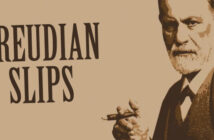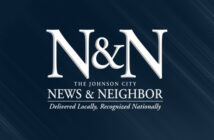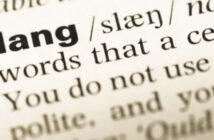I’d like to have a good mess of leather britches for every time someone has said to me, “Dave, you don’t talk in person the way you do on the radio.”
I, like most media folks, have a ‘professional’ voice that I used on the job. But as soon as the on-air light went off, I reverted to some version of the Southern Appalachian dialect I grew up using.
Actually, I had several professional voices. During my 50-plus years in broadcasting, I had the good fortune to host many different music formats . . . from Country to Rock ’n Roll, Big Band to Bluegrass, Pop to Gospel. And without much conscious effort, I embraced a delivery and vocabulary compatible with the audience I was speaking to.
During the last decade of my career, I did Talk radio and adopted as neutral an accent as possible for someone raised in the deep woods of the Appalachians.
Mine isn’t the only profession where people occasionally find the need to adjust their speech to their audience. A friend of mine in the banking business likes to say he was raised so far back in the sticks that “even the Methodists were snake handlers.” He speaks a pure mountain brogue when out of his office, but walk into his office and you’ll think you’ve been transported to Wall Street.
Since my retirement, I have little need for my professional voice, but I do a lot of what Southwest Virginia writer and blogger Chelyen Davis calls Appalachian code-switching. That’s when someone switches dialects depending on the circumstances.
And even within the Southern Appalachians, there are differences in language and words. Dried green beans are leather britches in Western North Carolina but in East Tennessee, where my wife is from, they are usually called shuck beans.
Of course, there are challenges for natives who move outside our area; they often become targets of amusement for people who are unfamiliar with our dialect and expressions. An example is our daughter, Jennifer, who married a Yankee and defected to Massachusetts. Early in her first job there, she informed a co-worker that she was “fixin’ to get ready to leave.” The co-worker had no idea what she was talking about.
My Appalachian accent grows stronger when I go back to the Valleytown community of Cherokee County each September for the Hogan family reunion. Lots of code-switching there! Speaking one way to someone who left the area years ago and returns for the annual reunion, and another way to those who’ve lived their entire lives in the area and, except for a little television influence, speak pure Southern Appalachian. Some examples:
You’ens (In most of the south, it’s y’all. But back home it’s you’ens.): “It’s good to see you’ens again!”
Fixin (Preparing): “I’m fixin to get me some pie.”
Liketa (Almost): “I liketa died laughing at Uncle Don.”
Peart (Well): “Aunt Faye looks mighty peart this year.”
Plumb (Completely): “I plumb forgot Aunt Ruby’s birthday.”
Reckon (Believe): “I reckon Cousin Charlie is too sickly to come this year.”
Poke (Bag): “I stopped and bought a poke of apples.”
Lawsy mercy (Astonishment): “Lawsy mercy, that cake looks good!”
Some say Appalachian English is the language of Shakespeare. Others dismiss it as simply bad grammar. As for me? I love it. May it never go away.
North Carolina State University has produced a wonderful video about the way we talk. It’s called “Mountain Talk” and is available on YouTube. In it are some great examples of, not only words and expressions used here in the mountains, but also the subtle accent differences found amongst us. One of the “stars” of the video is the late Appalachian moonshiner, Marvin “Popcorn” Sutton.
You’ens look it up sometime. It’s fun and informative.
After 57 years in the radio industry, Dave Hogan is enjoying his retirement in North Carolina. He’d love for you to say ‘howdy’ to him via email: davealtonhogan@gmail.com.




